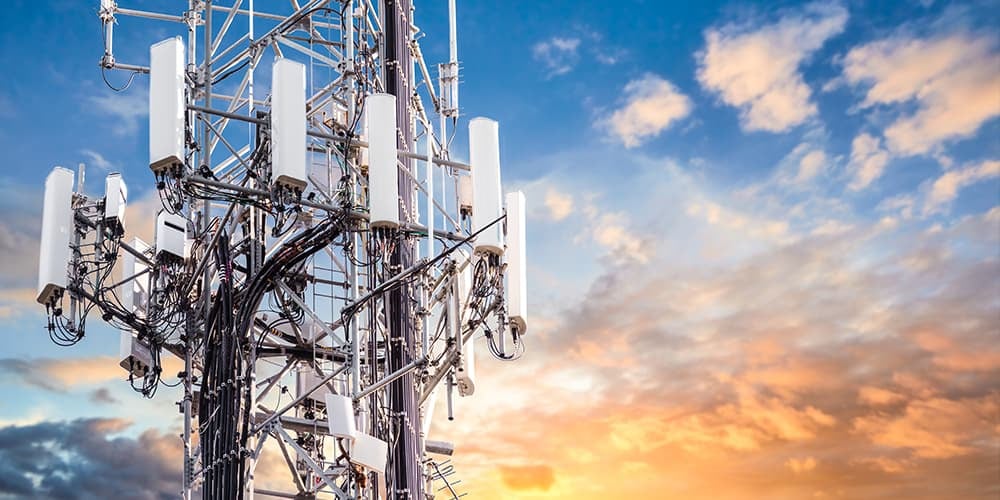11 Jul , 2024 By : Debdeep Gupta

Bharti Airtel and Reliance Jio are likely to record a 10-11 percent revenue growth for the quarter ended June 2024 over last year, driven by user upgrades to 4G/5G, a shift from prepaid to postpaid, and higher data consumption, analysts said.
Vodafone Idea’s revenue is expected to decline in the absence of network expansion and sustained churn in subscriber base, they said.
The impact of the recent price hikes by all three telcos is likely to be felt in the third quarter of FY25.
For Airtel, the growth will be on the back of a premiumisation-led rise in the average revenue per user (ARPU), while Jio will hitch a ride on a robust addition to a subscriber base.
“Airtel/ Jio to see 10-11 percent YoY growth in mobile segment, continued momentum in broadband and slight moderation in Bharti’s Enterprise business, while Jio’s services business to continue with its above-average growth,” Axis Capital said in a note.
Analysts at Axis Capital, however, mentioned that the revenue growth is unlikely to translate into EBITDA margin expansion since higher 5G adoption will lead to higher 5G expensing, which was capitalized during FY23-FY24. “We estimate wireless EBITDA margins to be largely flat (10-30 bps higher) in Q1FY25,” they said in a note.
Kotak Institutional Equities expects a 2 percent on-quarter and an 8 percent on-year growth in combined wireless revenue for the three private telcos, driven by an addition of 10 million subscribers, about 1 percent on-quarter growth, largely led by a continued move to Jio.
“We expect blended wireless ARPU to inch up a modest 0.5 percent QoQ (up 3 percent YoY) driven by the continued subscriber mix improvement for Bharti/Vi and rising FTTH (fiber-to-the-home) contribution for Jio," Kotak analysts said in a note.
Sequentially, EBITDA growth for Jio and Airtel are pegged at 3.1 percent and 2.4 percent, while Vodafone Idea may see a 3.4 percent decline in EBITDA, as per IIFL Securities.
Morgan Stanley expects Airtel’s consolidated revenue at Rs 388 million with a 3.1 percent QoQ and 3.5 percent YoY growth, EBITDA of Rs 202 billion with a 3.2 percent QoQ and 2.4 percent YoY growth; and recurring net profit of Rs 35 billion with 70.2 percent QoQ, 118.7 percent YoY growth.
“For Jio, We expect EBITDA growth to be led largely by net subscriber additions. We expect revenue growth to be led by incremental subscriber additions of 9 million, while ARPU could remain flat QoQ. We expect revenue of Rs 265 billion ( 2.2 percent QoQ, 11 percent YoY), EBITDA of Rs 139 billion ( 2.4 percent QoQ, 11.5 percent YoY), and EBITDA margin of 52.5 percent ( 10bp QoQ, 24bp YoY),” Morgan Stanley said in a note.
Vodafone Idea for revenue to decline
Vodafone Idea’s revenue is expected to drop 0.9 percent on-quarter to Rs 105 billion because of a loss of 2 million subscribers, while its ARPU is likely to remain stable in the absence of any material 4G net addition of subscribers, ICICI Securities said, adding that it expects the EBITDA to decline 0.9 percent QoQ, as operating cost remains under control on pending network rollout. “Net loss is seen at Rs 76 billion (nil tax rebate),” it said.
“For Vodafone Idea, we estimate a 3.4 percent QoQ decline in EBITDA: We estimate a 0.7 percent QoQ revenue decline for Vi, due to an expected subscriber loss of 2 million in Q1. Roaming and access charges may see normalisation QoQ, after expanding 8 percent in Q4. Network OPEX may increase by 4 percent QoQ, led by higher power and fuel costs during summer. We expect the total cost to rise by 1.1 percent QoQ. Consequently, EBITDA may see a 3.4 percent QoQ decline,” IIFL said.
JM Financial, however, expects Vodafone Idea’s revenue to grow 1 percent QoQ to Rs 107 billion, while EBITDA to improve by a marginal 0.1 percent QoQ to Rs 43 billion.
"We expect VIL’s subscriber loss trend to continue... We expect 1 million addition to MBB subscriber base... and ARPU to improve 2.1 percent QoQ to Rs 149 in 1QFY25 from Rs 146 in 4QFY24, aided by improving subscriber mix," it said.
Full impact of tariff hike by Q3
Analysts at Morgan Stanley said that Q1 is inconsequential now, given the impact of tariff hikes will come in the second or third quarter of the fiscal. “We believe potential ARPU increase over the next two quarters would be 16-18 percent. However, it will be important to see the net impact given the possibility of some downtrading as well as increased subscriber churn (owing to SIM consolidation). For Q1, we believe moderating trends in capex would be key to watch for,” they wrote in a note.
Axis Capital also said that it will be two quarters for the recent tariff hikes to show the full impact. “Our base case assumed a 25 percent tariff hike in 4G prepaid with a hike-to-ARPU transmission of 60 percent, resulting in a 15 percent ARPU growth. With telcos having taken a hike across a wider segment of subscriber base as well as Jio kickstarting 5G monetization, ARPU growth for Bharti and Jio would be 14 and 17 percent in the next 12 months,” it said in a separate note.
0 Comment